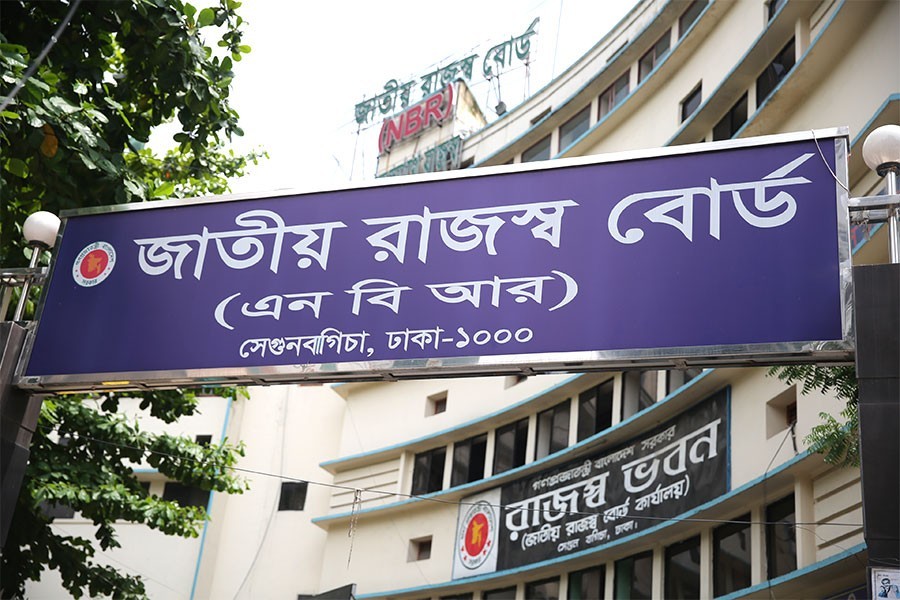The revenue board gives a detailed overview to the visiting mission of the International Monetary Fund (IMF) on how it plans to meet the collection target this fiscal overcoming challenges.
The government has set a Tk 3.70-trillion target for tax-revenue collection in fiscal year (FY) 2022-23.
The overview was made at a meeting on the National Board of Revenue (NBR) premises on Monday.
NBR chairman shared the board's effort to achieve an average 15-per cent growth amid Covid challenges last year, officials, who attended the meeting, told the FE.
However, the actual tax-revenue collection data for FY 2021-22 is yet to be compiled from the across the country.
Chairman Abu Hena Md Rahmatul Muneem pointed out two challenges for tax authorities, including increasing tax collection from individuals and retail businesses.
The delegation, led by Rahul Anand, division chief of the IMF's Asia and Pacific Department, sought any update on finalising the new Income Tax Law.
It also wanted to know about the NBR's effort to outsource the electronic fiscal device (EFD), customs automation, national single window project and electronic tax deducted at source.
The visiting mission of the Washington-based lender will visit different government and private officials until July 21.
Finance ministry has recently opened negotiations to take out a $4.5-billion loan from the IMF in a bid to narrow its budget deficit and level up the foreign-currency reserves.
A senior NBR official says the revenue board has outlined high, medium and low-category needs for technical assistance (TA) from the IMF to develop capacity of its officials.
There is a need for TA on risk management, audit techniques, impact assessment of tax expenditure, detecting tax-VAT swindle or carousel fraud, he adds.
Capacity of tax and VAT officials should be developed to analyse financial reports of taxpayers and VAT returns of businesses, according to the official.
Auditing electronic transactions is now a demand of the time as the NBR is framing fiscal policies for cashless transactions, he states.
The NBR needs TA to overcome the challenges on tax collection from digitisation and cash economy, he says.
Implementation of transfer-pricing law and technique of detecting multinational companies' tax evasion through BEPS (base erosion and profit-shifting), supply-chain tracking and tracing, and expertise in value-chain analysis are also required.
On low-category CD (customs duty), officials say the NBR needs asset and debt recovery training for freezing and seizing assets.


